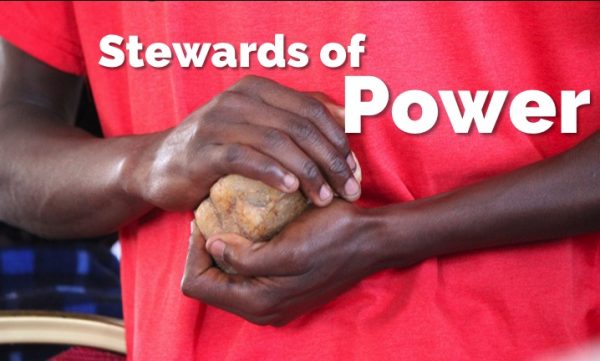Every ministry leader is a steward of power. The use of power can either cultivate potential in others and achieve desired results, or it can harm people and stall progress. Here are four lessons for leaders to keep in mind as we navigate the types of power at our disposal.
Lesson #1: The exercise of power is not the same as the practice of leadership.
As author Jim Collins says in Good to Great and the Social Sectors, “If I put a loaded gun to your head, I can get you to do things you might not otherwise do, but I’ve not practiced leadership; I’ve exercised power.” If people follow because they have no choice, then that’s not leading.
Lesson #2: Power can either create or destroy; it is almost never neutral.
Power used wisely has enormous potential for good. God’s creative power brought the universe into being. But according to the biblical record, Adam and Eve’s original sin soon resulted in destructive power. They wanted to be more, to know more, to have more. They were not content to be creatures; they wanted to be gods. Similarly, many leaders struggle with the feeling that they never have quite enough power. It’s like drinking salt water: the more you drink the thirstier you get.
Lesson #3: Excellent leaders seek to use the right type of power at the right time.
In 1959, John French and Bertram Raven wrote about five distinct types of power in leadership. Later they added a sixth.
Here are the six types of power in order from least effective to most effective:
- Coercive power – forcing someone to do something against their will.
- Reward power – the concept of “do this and get that.”
- Legitimate power – command and control due to one’s position.
- Referent power – the power of respect due to the leader’s personality, relationship with others, or track record of success.
- Informational power – having information that another does not have, and distributing that information as a means of bringing about change.
- Expert power – an individual uses knowledge or expertise in an area that they are responsible for to influence others.
Competent leaders apply the appropriate type of power when needed to propel others to be their best.
Lesson #4: Power can be especially destructive in the service of religion.
The misuse of religious power can damage in a way that no other power can. The current spread of terrorism by religious extremists demonstrates that those who become a law unto themselves, and at the same time take on a mantle of piety, are particularly corruptible. When leaders are convinced that their voice is the voice of God, they assume inappropriate power and use it to their own ends. Those religious leaders who are not accountable are most likely to leverage power to the detriment of others.
With the challenges of our fast-paced world, the mantle of ministry leadership can drift from the pursuit of grace-based relationships into an irrational dependency on power. In light of these realities, it’s good to be reminded of the less practiced but worthier example of Jesus, who led with power that built up people and established a movement for the ages.

Thank you! I’ve never heard this before. It gives me insight into myself and my own actions, my own positive leadership and mistakes I’ve made in realms that could be considered leadership positions. These ideas also speak to what the proper motivation of leadership should be – to cultivate potential for good in others. Thank you for stating these ideas in a clear way. I’ll keep this information and read it as often as I need to in order to better understand why and how to use any leadership role God may give me.